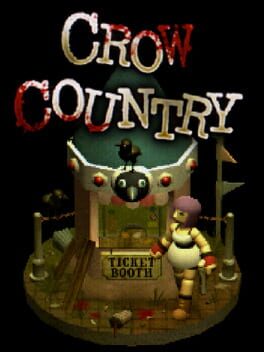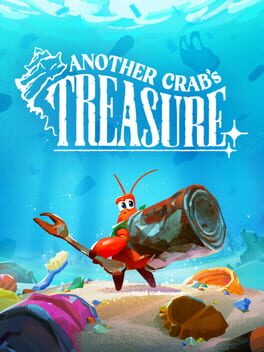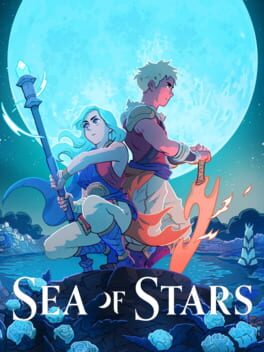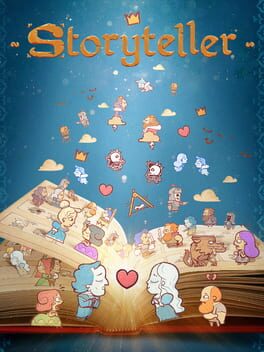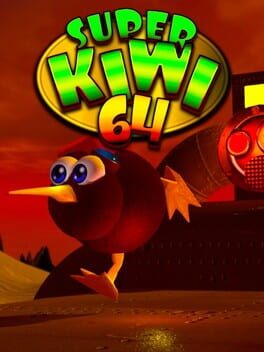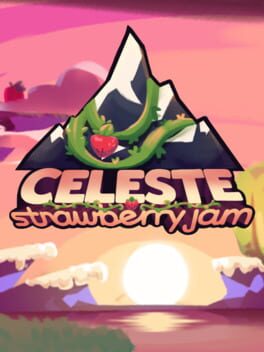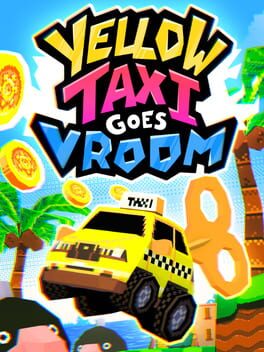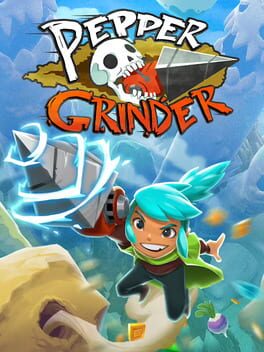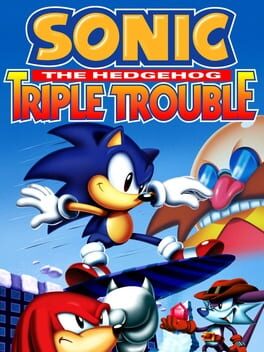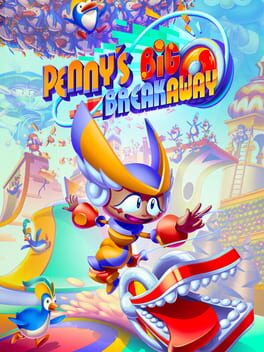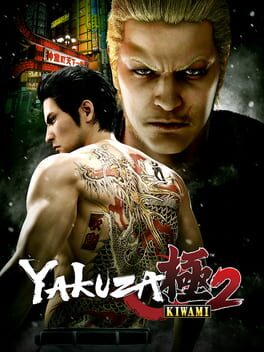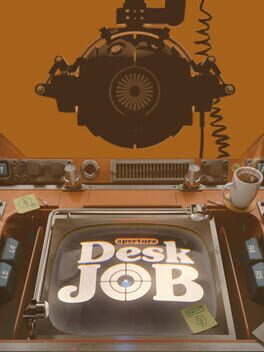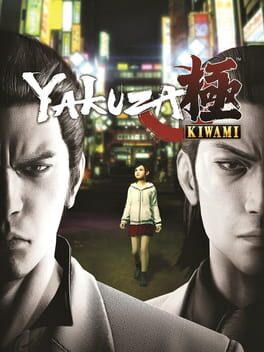ray45
2024
This is a superb survival horror game that thrives on fantastically rendered art and dense atmosphere, but stumbles with its combat features and overall balance.
Crow Country is a PS1-inspired survival horror game that follows detective Mara Forest, who is assigned to investigate an abandoned theme park, that was closed for reasons unknown. The story that unfolds here is sublime, achieving the perfect equilibrium between the supernatural and the scientific. By the end of it, I was completely sold on the world they were building and hope that they explore more of it in subsequent games. Crow Country itself is rendered with such strong attention to detail, in that it feels like no expense was spared when it came to creating new assets that fit the particular location. The soundtrack compared by Ockeroid was a real delight to listen to, particularly the save room music.
Crow Country's one big flaw is its lack of tension, owing to the resource / damage balance that seems skewed towards the player. Though the gunplay itself is sound, the tuning of enemy damage and overpowered running mechanic makes combat and resource management feel trivial. Enemies rarely deviate from the "creepy thing that walks slowly towards you" template. As such, I never found exploration in Crow Country to be suspenseful, much less scary.
Still, SFB games display a tremendous amount of range here. I cannot believe this is the same studio that made Snipperclips and Tangle Tower — two very bright & cartoony games —, and that they nailed the survival horror format on their first attempt. Highly recommended to any type of players, even people who don't usually play this sort of game, since there's an exploration mode which removes the enemies.
Crow Country is a PS1-inspired survival horror game that follows detective Mara Forest, who is assigned to investigate an abandoned theme park, that was closed for reasons unknown. The story that unfolds here is sublime, achieving the perfect equilibrium between the supernatural and the scientific. By the end of it, I was completely sold on the world they were building and hope that they explore more of it in subsequent games. Crow Country itself is rendered with such strong attention to detail, in that it feels like no expense was spared when it came to creating new assets that fit the particular location. The soundtrack compared by Ockeroid was a real delight to listen to, particularly the save room music.
Crow Country's one big flaw is its lack of tension, owing to the resource / damage balance that seems skewed towards the player. Though the gunplay itself is sound, the tuning of enemy damage and overpowered running mechanic makes combat and resource management feel trivial. Enemies rarely deviate from the "creepy thing that walks slowly towards you" template. As such, I never found exploration in Crow Country to be suspenseful, much less scary.
Still, SFB games display a tremendous amount of range here. I cannot believe this is the same studio that made Snipperclips and Tangle Tower — two very bright & cartoony games —, and that they nailed the survival horror format on their first attempt. Highly recommended to any type of players, even people who don't usually play this sort of game, since there's an exploration mode which removes the enemies.
Just Wow.
This game has many flaws for sure, and could have used a few more months of polish. The hitboxes are genuinely bad and the texturework gets progressively more sloppy as the game goes along. Game balancing is also an issue, where the first Adaptation you get absolutely trivialises bossfights and regular enemy encounters. The game is quite sloppy in its construction, which would ordinarily kill the experience for me.
But...
This game is MASSIVE. The fact that a team of only 12 people made this was constantly buzzing throughout my mind, as I stumbled into a massive new area or discovered a secret location hidden in the landscape. The story and lore impress more than I thought it would. I've been following the game since it was announced, and nothing in the game's marketing indicated the true scope of the experience. There are several fakeouts throughout the story where I thought "surely this is the end" but it just kept going and introduced surprising new locations, bosses and mechanics. Level design and platforming is all great as well. The soundtrack is a banger too.
With some extensive patches, this could be a 9/10 though the combat stumbles too often to overlook it's issues.
This game has many flaws for sure, and could have used a few more months of polish. The hitboxes are genuinely bad and the texturework gets progressively more sloppy as the game goes along. Game balancing is also an issue, where the first Adaptation you get absolutely trivialises bossfights and regular enemy encounters. The game is quite sloppy in its construction, which would ordinarily kill the experience for me.
But...
This game is MASSIVE. The fact that a team of only 12 people made this was constantly buzzing throughout my mind, as I stumbled into a massive new area or discovered a secret location hidden in the landscape. The story and lore impress more than I thought it would. I've been following the game since it was announced, and nothing in the game's marketing indicated the true scope of the experience. There are several fakeouts throughout the story where I thought "surely this is the end" but it just kept going and introduced surprising new locations, bosses and mechanics. Level design and platforming is all great as well. The soundtrack is a banger too.
With some extensive patches, this could be a 9/10 though the combat stumbles too often to overlook it's issues.
2023
Big disappointment coming off one of the favourite games, The Messenger. I really hope whatever genre of game they make next isn't so dialogue or character-heavy because dear god is that not their strong suit.
The art and music were nice though, and I had fun with the combat, though it's nowhere near as novel or charming as the Mario & Luigi games.
The art and music were nice though, and I had fun with the combat, though it's nowhere near as novel or charming as the Mario & Luigi games.
2023
"Storyteller" has an incredible gameplay concept that may eventually be realised into an amazing sequel. As it is, the game is a little short and often trivially easy, but the attention to detail and originality on display made it worth the $15 spent. Characters have countless unique animations based on the background, scene partners and the events leading up to that panel.
Causality is the main theme "Storyteller" explores. The game does this brilliantly by giving you a story prompt, and forcing you to work your way backwards such that the ending is properly set up by preceding events. As simple the stories are, prospective writers could definitely learn something about "cause and effect" from this game. My favourite detail is how later panels update instantly when making changes in earlier ones, showing the immediate effect of your action. The game never feels obtuse in its puzzle logic and flows incredibly well from puzzle-to-puzzle. I found it hard to put down in the 4 hours I took to beat it.
The game's difficulty is its biggest problem. Half of the levels can be solved in under a minute, making a large chunk of this game feel somewhat arbitrary. I wish the game left more room to fully experiment within its sandbox. I'd love to eventually see a level editor for this game that allows you to upload prompts to a server and see if players can realise it through their creativity.
I would love to see a sequel that implements some sort of meta aspect where solutions to individual stories are fed into some larger narrative. Since puzzles are often open-ended, this could involve whether you chose to kill off or spare characters, leading to repercussions later. Some of the best puzzle games in recent memory - Can of Wormholes, Baba is You, The Witness - have this sort of meta-puzzle that really elevate the mechanics beyond what you thought was initially possible. Storyteller lacks that sort of revelation, which prevents it from reaching the upper echelon of puzzle games.
Nonetheless, it was a fun couple of hours and I can't stop imagining what sort of games could stem from this concept.
Causality is the main theme "Storyteller" explores. The game does this brilliantly by giving you a story prompt, and forcing you to work your way backwards such that the ending is properly set up by preceding events. As simple the stories are, prospective writers could definitely learn something about "cause and effect" from this game. My favourite detail is how later panels update instantly when making changes in earlier ones, showing the immediate effect of your action. The game never feels obtuse in its puzzle logic and flows incredibly well from puzzle-to-puzzle. I found it hard to put down in the 4 hours I took to beat it.
The game's difficulty is its biggest problem. Half of the levels can be solved in under a minute, making a large chunk of this game feel somewhat arbitrary. I wish the game left more room to fully experiment within its sandbox. I'd love to eventually see a level editor for this game that allows you to upload prompts to a server and see if players can realise it through their creativity.
I would love to see a sequel that implements some sort of meta aspect where solutions to individual stories are fed into some larger narrative. Since puzzles are often open-ended, this could involve whether you chose to kill off or spare characters, leading to repercussions later. Some of the best puzzle games in recent memory - Can of Wormholes, Baba is You, The Witness - have this sort of meta-puzzle that really elevate the mechanics beyond what you thought was initially possible. Storyteller lacks that sort of revelation, which prevents it from reaching the upper echelon of puzzle games.
Nonetheless, it was a fun couple of hours and I can't stop imagining what sort of games could stem from this concept.
2022
An extremely bland game that would have been forgotten in the era it was inspired by. The fundamentals are there, I guess - collectables are fun enough to get, and it controls smoothly - but there's no unique conceit or vision here to keep things interesting beyond the introduction.
I've played Toree 1 & 2 + Beeny and this developer's schtick of short but dirt cheap games isn't really working for me, when none of them have been the least bit memorable. Am definitely going to skip them from now on.
I've played Toree 1 & 2 + Beeny and this developer's schtick of short but dirt cheap games isn't really working for me, when none of them have been the least bit memorable. Am definitely going to skip them from now on.
A wild concept that is well executed, but is missing that last bit of focus to truly make it exceptional.
Before getting into that last bit, I do want to stress that the game truly feels novel in a way that 3D platformers rarely have since the PS1 days, where developers were constantly experimenting with weird ideas and control schemes. For the uninformed, 'Yellow Taxi Goes Vroom' is a 3D collectathon, with many gameplay elements lifted from 'Crazy Taxi'. It basically takes that game's general mechanics and chaotic gameplay, and translates it to a 3D platformer with big sandbox levels, often set in cityscapes. In an exceptionally bold choice for its genre, the game lacks a traditional jump button, instead relying on bizarre techniques to pull off this function. I won't spoil them all here, but as an example, one of the hidden tricks you can perform requires you to prematurely cancel your dash, which lifts you up slightly into the air, enough to get up small platforms. Most of the time, however, the game wants you to use the momentum from your dash to launch into the air. This trick is the game's biggest accomplishment and was a large part of why I was so initially enamoured by it.
The level / world design draws a lot of inspiration from the sandbox 3D Mario games. There are actually a lot of references to those games here, from the pan-over of all the major landmarks at the start of the level, to some explicit level concepts ripped straight out of 64 / Odyssey, to the Peach's Castle-esque hub world that hides many secrets of its own. As a big fan of those games, those references were more than welcome, yet never got in the way of the game forming a distinct identity. The humour mostly misses for me, but the PS1-inspired art style was quite charming overall. The flow of the levels feels similar to Super Mario Odyssey, with many hidden rooms that contain more focused platforming challenges and a plentiful amount of Gears (the main collectible) to find. Most Gears are placed in a such a way where you have multiple ways of obtaining them, using any combination of dashes, ramp, dash cancels etc. to reach them. The game is much harder than its inspirations, as you REALLY need to master the moveset and all the hidden moves to 100% the game.
The game felt fantastic to play at the start, but starts to feel tedious as it goes on. It follows a disappointing string of platformers recently that struggle to coalesce in a satisfying way, like the best platformers do. Think of how well the Mario games build to a dramatic conclusion, through great use of theming and escalating level design. Penny's Big Breakaway and Pepper Grinder suffered from this issue, and Yellow Taxi Goes Vroom is yet another game that encounters this issue. By the last few worlds, it gives up on the novel level design that made the game initially so captivating, in favour of generic platforming segments that feel so awkward within the game's unconventional mechanics.
I recommend this overall. It was not on my radar at all, so I was shocked by how much I ended up enjoying it. I'm excited to see more stuff from this developer in the future.
Before getting into that last bit, I do want to stress that the game truly feels novel in a way that 3D platformers rarely have since the PS1 days, where developers were constantly experimenting with weird ideas and control schemes. For the uninformed, 'Yellow Taxi Goes Vroom' is a 3D collectathon, with many gameplay elements lifted from 'Crazy Taxi'. It basically takes that game's general mechanics and chaotic gameplay, and translates it to a 3D platformer with big sandbox levels, often set in cityscapes. In an exceptionally bold choice for its genre, the game lacks a traditional jump button, instead relying on bizarre techniques to pull off this function. I won't spoil them all here, but as an example, one of the hidden tricks you can perform requires you to prematurely cancel your dash, which lifts you up slightly into the air, enough to get up small platforms. Most of the time, however, the game wants you to use the momentum from your dash to launch into the air. This trick is the game's biggest accomplishment and was a large part of why I was so initially enamoured by it.
The level / world design draws a lot of inspiration from the sandbox 3D Mario games. There are actually a lot of references to those games here, from the pan-over of all the major landmarks at the start of the level, to some explicit level concepts ripped straight out of 64 / Odyssey, to the Peach's Castle-esque hub world that hides many secrets of its own. As a big fan of those games, those references were more than welcome, yet never got in the way of the game forming a distinct identity. The humour mostly misses for me, but the PS1-inspired art style was quite charming overall. The flow of the levels feels similar to Super Mario Odyssey, with many hidden rooms that contain more focused platforming challenges and a plentiful amount of Gears (the main collectible) to find. Most Gears are placed in a such a way where you have multiple ways of obtaining them, using any combination of dashes, ramp, dash cancels etc. to reach them. The game is much harder than its inspirations, as you REALLY need to master the moveset and all the hidden moves to 100% the game.
The game felt fantastic to play at the start, but starts to feel tedious as it goes on. It follows a disappointing string of platformers recently that struggle to coalesce in a satisfying way, like the best platformers do. Think of how well the Mario games build to a dramatic conclusion, through great use of theming and escalating level design. Penny's Big Breakaway and Pepper Grinder suffered from this issue, and Yellow Taxi Goes Vroom is yet another game that encounters this issue. By the last few worlds, it gives up on the novel level design that made the game initially so captivating, in favour of generic platforming segments that feel so awkward within the game's unconventional mechanics.
I recommend this overall. It was not on my radar at all, so I was shocked by how much I ended up enjoying it. I'm excited to see more stuff from this developer in the future.
2024
'Pepper Grinder' is a 2D platformer whose main gimmick is a drill which lets you move through patches of dirt. This mechanic will feel familiar to anyone who has played Ori & the Will of the Wisps, as it's almost identical to the burrow mechanic from that's game penultimate level. The game makes a very strong first impression, as controlling this drill is one of the best feeling mechanics I've experienced in any platformer. The tactility of this thing is perfectly tuned. This is elevated by excellent sound & visual design that makes every action feel crunchy and satisfying to perform.
In a genre that's dominated by Metroidvanias, Megaman-likes and Celeste clones, it's really nice to see a "Course Clear!"-style platformer being released. Early on, the level design is quite strong, where everything in the game world interacts with the drill in novel ways, such as using it to spin platforms or pierce zeppelins. The level design is open-ended enough that the player can intuitively identify shortcuts in the dirt patches, making the Time Attack mode particularly addicting, as it encourages going off the intended path and seeing what you can get away with, by dashing out of a patch of dirt. The difficulty curve is solid throughout, with some minor difficulty spikes towards the end, though nothing too egregious.
For the first two worlds, I was loving the game and thought it could be up there with some of the greats. However, the game really starts to stumble in the back half, as it reveals some major limitations in the level design and ESPECIALLY the boss fights. Starting with level design, there is so much you could do with this concept, yet these later levels feel like they barely do anything with it. Different types of dirt that change the way you move through them or modules for the drill that augment its properties, are just some of the things they could have explored here. It was disappointing to get to World 4 and realise the game was becoming more mindless, due to an increase in combat sections. Some of the later additions are particularly bleh, like the big, clunky robot or numerous gun sections in World 4. Level 4-A was the one bright spot in the back half of the game, as it found a creative way to use the drill, though it was too little too late by that point. The bosses are particularly rough here, as 3 out of the 4 have the exact same arena and can ostensibly be fought the same way; by hiding in the dirt and popping out between attack phases. There was a missed opportunity for the boss fights to play out like the chase sequences from the Ori games, since the gameplay mechanics here aren't really suited to combat.
I do recommend Pepper Grinder overall. Short as it is, it didn't overstay welcome and remains a joy to control throughout. It's just difficult not to feel like there was a lot of missed potential here. Nonetheless, it's an impressive effort for a game made by just one person, and I hope this game is successful enough for them to make more games.
In a genre that's dominated by Metroidvanias, Megaman-likes and Celeste clones, it's really nice to see a "Course Clear!"-style platformer being released. Early on, the level design is quite strong, where everything in the game world interacts with the drill in novel ways, such as using it to spin platforms or pierce zeppelins. The level design is open-ended enough that the player can intuitively identify shortcuts in the dirt patches, making the Time Attack mode particularly addicting, as it encourages going off the intended path and seeing what you can get away with, by dashing out of a patch of dirt. The difficulty curve is solid throughout, with some minor difficulty spikes towards the end, though nothing too egregious.
For the first two worlds, I was loving the game and thought it could be up there with some of the greats. However, the game really starts to stumble in the back half, as it reveals some major limitations in the level design and ESPECIALLY the boss fights. Starting with level design, there is so much you could do with this concept, yet these later levels feel like they barely do anything with it. Different types of dirt that change the way you move through them or modules for the drill that augment its properties, are just some of the things they could have explored here. It was disappointing to get to World 4 and realise the game was becoming more mindless, due to an increase in combat sections. Some of the later additions are particularly bleh, like the big, clunky robot or numerous gun sections in World 4. Level 4-A was the one bright spot in the back half of the game, as it found a creative way to use the drill, though it was too little too late by that point. The bosses are particularly rough here, as 3 out of the 4 have the exact same arena and can ostensibly be fought the same way; by hiding in the dirt and popping out between attack phases. There was a missed opportunity for the boss fights to play out like the chase sequences from the Ori games, since the gameplay mechanics here aren't really suited to combat.
I do recommend Pepper Grinder overall. Short as it is, it didn't overstay welcome and remains a joy to control throughout. It's just difficult not to feel like there was a lot of missed potential here. Nonetheless, it's an impressive effort for a game made by just one person, and I hope this game is successful enough for them to make more games.
Penny's Big Breakaway is a great time for speedrunners, but isn't quite as satisfying for a casual playthrough.
I can't say anything about the fantastic movement system and level design that hasn't already been said, yet I feel that the game doesn't blend the two as well as it could have. Levels are large & elaborate, yet the high-level play almost encourages you to simplify them and disincentivises interactions with world-specific gimmicks. The overall effect is a sense of sameyness as you progress through the game. If you try to play the game more casually, then the levels will feel empty & overly large. The last few worlds were noticeably weaker than the rest, as they start to reuse mechanics and lack the story buildup & atmosphere that many platformers employ to create a satisfying ending.
Another pain point for me is the original universe that they've built. The world of Penny's Big Breakaway is vibrant and boasts distinct art design & use of colour, but feels oddly charmless for a number of reasons. The dialogue isn't particularly funny, and the cutscenes are extremely tedious to sit through. A bigger issue is the sound design, which is very indistinct and lacks the recognisable soundscape of its contemporaries. The lack of voice acting hurts it too, as Penny herself lacks a memorable personality & voice.
I've been extremely critical up to this point because I overall loved this game and want to see it improve with time. Alongside Balatro, this game taken up 90% of my gaming time over the past month. The core gameplay is very well done, and the 'ride' mechanic perfectly captures the immense satisfaction of holding down on a slope in a 2D Sonic game. For a debut title, this is an extremely strong first impression for Evening Star Studios. The talent that was hinted at in Sonic Mania's handful of original levels is on full display here, and I hope the team takes the feedback to heart and makes a fantastic sequel to this someday. While not a high bar to clear, it's easily the best 3D platformer that has been produced in the indie space.
I can't say anything about the fantastic movement system and level design that hasn't already been said, yet I feel that the game doesn't blend the two as well as it could have. Levels are large & elaborate, yet the high-level play almost encourages you to simplify them and disincentivises interactions with world-specific gimmicks. The overall effect is a sense of sameyness as you progress through the game. If you try to play the game more casually, then the levels will feel empty & overly large. The last few worlds were noticeably weaker than the rest, as they start to reuse mechanics and lack the story buildup & atmosphere that many platformers employ to create a satisfying ending.
Another pain point for me is the original universe that they've built. The world of Penny's Big Breakaway is vibrant and boasts distinct art design & use of colour, but feels oddly charmless for a number of reasons. The dialogue isn't particularly funny, and the cutscenes are extremely tedious to sit through. A bigger issue is the sound design, which is very indistinct and lacks the recognisable soundscape of its contemporaries. The lack of voice acting hurts it too, as Penny herself lacks a memorable personality & voice.
I've been extremely critical up to this point because I overall loved this game and want to see it improve with time. Alongside Balatro, this game taken up 90% of my gaming time over the past month. The core gameplay is very well done, and the 'ride' mechanic perfectly captures the immense satisfaction of holding down on a slope in a 2D Sonic game. For a debut title, this is an extremely strong first impression for Evening Star Studios. The talent that was hinted at in Sonic Mania's handful of original levels is on full display here, and I hope the team takes the feedback to heart and makes a fantastic sequel to this someday. While not a high bar to clear, it's easily the best 3D platformer that has been produced in the indie space.
2024
2017
I had a rough experience with Kiwami 1, particularly in how the characters hinted at in Yakuza 0 were wasted by a plot that seemed to be uninterested in doing anything with the massive time jump between games or expanding on these less-explored characters.
Fortunately, Kiwami 2 is a big improvement in nearly every way and I’m surprised how mixed the reception seems to be in these reviews. Several twists caught me off-guard, though, unlike Kiwami, actually made sense and was correctly foreshadowed. The new characters introduced were solid and had satisfying arcs, while providing necessary backstory for Kazama that I felt was absent in Kiwami 1. The camerawork in the last game was a big step down from Yakuza 0. Thankfully, that bar of quality has been restored here, with a far more cinematic presentation, where the camera placement and movement is so much more creative and deliberate.
Combat is good, but it’s the one area that feels like a sidegrade rather than an outright improvement. Game feel is slightly worse than the last 2 games, and the overall difficulty is extremely low, even on Hard mode. On the other hand, the weapons are far better implemented this go around because of the ability to have multiple equipped. The progression was also streamlined in a positive way, with way more options being unlockable at once.
The side activities had better overall mechanics, with the Clan creator being surprisingly addictive and funny, in how it tries to parallel the setup of Yakuza 0. Some other small improvements include the addition of Golf and the selection of Karaoke being much wider this time. The substories were decent, though I doubt I’ll remember any of them a year from now, aside from… well you know the one.
I really loved this game and it’s restored my faith in the series.
Fortunately, Kiwami 2 is a big improvement in nearly every way and I’m surprised how mixed the reception seems to be in these reviews. Several twists caught me off-guard, though, unlike Kiwami, actually made sense and was correctly foreshadowed. The new characters introduced were solid and had satisfying arcs, while providing necessary backstory for Kazama that I felt was absent in Kiwami 1. The camerawork in the last game was a big step down from Yakuza 0. Thankfully, that bar of quality has been restored here, with a far more cinematic presentation, where the camera placement and movement is so much more creative and deliberate.
Combat is good, but it’s the one area that feels like a sidegrade rather than an outright improvement. Game feel is slightly worse than the last 2 games, and the overall difficulty is extremely low, even on Hard mode. On the other hand, the weapons are far better implemented this go around because of the ability to have multiple equipped. The progression was also streamlined in a positive way, with way more options being unlockable at once.
The side activities had better overall mechanics, with the Clan creator being surprisingly addictive and funny, in how it tries to parallel the setup of Yakuza 0. Some other small improvements include the addition of Golf and the selection of Karaoke being much wider this time. The substories were decent, though I doubt I’ll remember any of them a year from now, aside from… well you know the one.
I really loved this game and it’s restored my faith in the series.
2022
I was hoping Aperture Desk Job was something like Astro’s Playroom or Wii Sports, but sadly isn’t anywhere near the level of those titles in terms of showing off the potential of the hardware. Zero replayability, depth or story. It’s sorta funny and looks suprisingly high budget, but that’s about all it has going for it.
2016
2015
Yakuza 0 is the first stop on my journey towards (eventually) playing Infinite Wealth, and what an introduction it is. RGG really knows how to present a compelling premise and follow through with its execution. The way key events are set up and staged is so well-done that I just couldn't stop playing until I completed the story.
Unfortunately, it struggles to find the perfect balance between both of its protagonists, particularly with giving them distinctive traits and contrasting their journeys in interesting ways. I was more invested in Majima overall, which feels like the wrong takeaway given that Kiryu is the series protagonist. While very likeable in his own right, he often came off as wooden and one-note during cutscenes. All the villains are centred around Kiryu, yet many are fought by Majima despite having little direct connection to them. Still, the game's supporting cast is fantastic, particularly Kuze and Makoto.
Perhaps it's larger number of styles & weapons to play with, or the more inventive encounter design, but the combat worked for me here in a way that Judgement's didn't. The diversity of heat actions and moves to play with was a lot of fun.
Aside from this, there is a laundry list of frustrations with the game's systems.
- There's a slowness to everything that halts the pace of the game. Saving taking 15 seconds on PlayStation, even on PS5, styles having a delay between switching, unskippable cinematics.
- The abilities are way too expensive.
- Shifting between the dialogue cutscenes and pre-rendered stuff is jarring.
- Saving takes like 15 seconds, even on PS5.
Overall, the game was a total blast and I'm looking forward to the rest of the series. Now onto Kiwami...
Unfortunately, it struggles to find the perfect balance between both of its protagonists, particularly with giving them distinctive traits and contrasting their journeys in interesting ways. I was more invested in Majima overall, which feels like the wrong takeaway given that Kiryu is the series protagonist. While very likeable in his own right, he often came off as wooden and one-note during cutscenes. All the villains are centred around Kiryu, yet many are fought by Majima despite having little direct connection to them. Still, the game's supporting cast is fantastic, particularly Kuze and Makoto.
Perhaps it's larger number of styles & weapons to play with, or the more inventive encounter design, but the combat worked for me here in a way that Judgement's didn't. The diversity of heat actions and moves to play with was a lot of fun.
Aside from this, there is a laundry list of frustrations with the game's systems.
- There's a slowness to everything that halts the pace of the game. Saving taking 15 seconds on PlayStation, even on PS5, styles having a delay between switching, unskippable cinematics.
- The abilities are way too expensive.
- Shifting between the dialogue cutscenes and pre-rendered stuff is jarring.
- Saving takes like 15 seconds, even on PS5.
Overall, the game was a total blast and I'm looking forward to the rest of the series. Now onto Kiwami...
